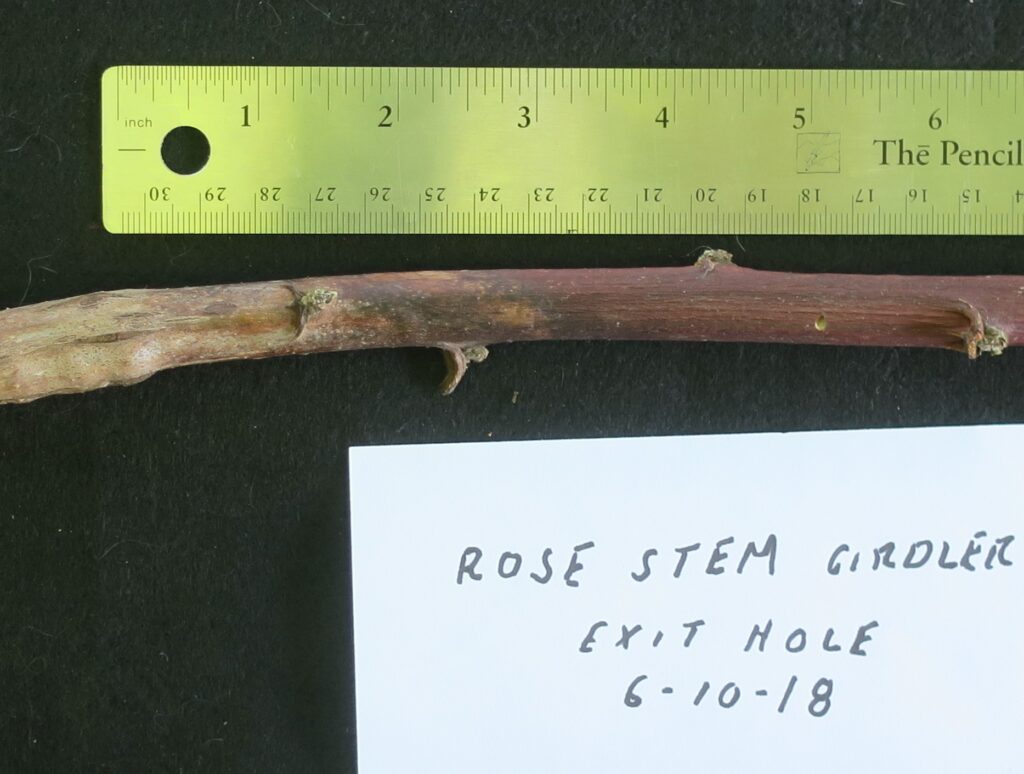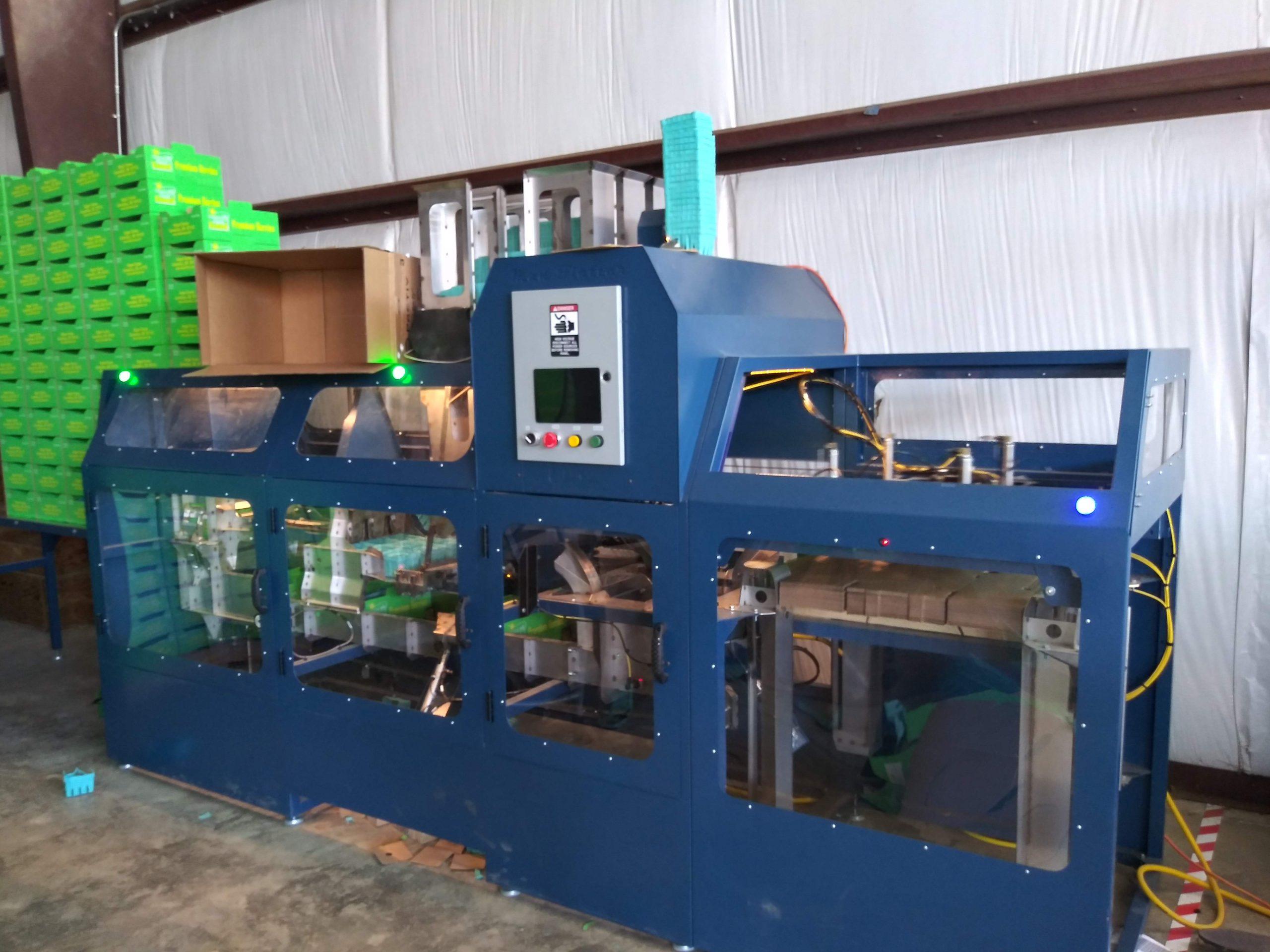
There has been a common phone call over the last few weeks. It usually starts out with “My blackberry/raspberry field has so many primocanes collapsing right now!” Almost always the answer is yes when asked if the field is a baby field (planted in the past year). That isn’t to say there haven’t been fields with the same concerns right now.
The culprit: Rose Stem Girdler. This insect is easily identified by looking towards the base of the cane and finding at least one swollen section which is inhibiting water and nutrients from flowing naturally that, over time, causes the growth above the girdled section to collapse.
Most all seasons before this there was the occasional baby field reported with damage but nothing past that. This year we’re even seeing several fields, new and old, and even swollen infection sites on the top third of a cane.
But why was this season the season for the flare up? I’m hypothesizing that this was a low pressure SWD year and many of the growers I talked with had mentioned they didn’t need to manage SWD in their fields until the last harvest so the usual default managed insects like Rose Stem Girdler may have not been managed this season. This is likely the case in older fields but baby fields typically are left to their own devices anyway so pressure must have been unusually high.
Grower should not give up total hope on the collapsed canes. Of course they will be difficult to train up as they are generally more brittle and those canes that are clearly dead above the girdle can be pruned out below the girdle. However, the thicker the cane, the more likely the cane will be able to limp along to next season. Production on those compromised canes will be down but as long as there are no additional stresses to the cane, there will be a light harvest on them.
Unfortunately, chemical management is not effective at this larval lifecycle. Adult flight during late May or June is the key management window. You can sign up to follow the WSU AgWeatherNet Rose Stem Girdler lifecycle model for best adult emergence in your specific area.
Do you think there are other reasons why Rose Stem Girdler decided to step up in 2024? Do we need to have additional research going towards seeking better tools for this pest?
Chime in below to join the conversation








Enter your email to subscribe to important updates about the Northwest Berry Foundation, agricultural industry updates, The Small Fruit Update, and so much more!